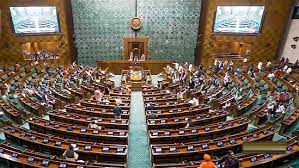In a significant political development, the Trinamool Congress (TMC) and the Congress Party are showing signs of reconciliation ahead of the upcoming Parliament session. This potential thaw in relations marks a strategic shift that could bolster the Opposition’s efforts to present a united front against the ruling Bharatiya Janata Party (BJP).
Historical Context
The relationship between the TMC and Congress has been fraught with tension and competition, particularly in West Bengal. The TMC, led by Mamata Banerjee, has often positioned itself as a dominant regional force, sometimes at odds with the Congress party’s broader national strategy. Despite this contentious history, both parties are recognizing the necessity of alliances to strengthen their position against the BJP.
Strategic Alliances
The primary driver behind this rapprochement is the strategic need for alliances. The political landscape in India is highly fragmented, and a united Opposition is seen as essential to counter the BJP’s stronghold. Both TMC and Congress stand to benefit from combining their vote banks and resources, creating a more formidable opposition.
Electoral Compulsions
Several state elections are on the horizon, and the general elections are not far off. The urgency to avoid vote splits and present a cohesive alternative to the electorate is more pressing than ever. For instance, in states like West Bengal, where TMC has a strong presence, collaboration with Congress could prevent the division of anti-BJP votes, enhancing the chances of defeating BJP candidates.
Leadership Dynamics
Improved relations between the leadership of both parties are crucial for the success of this alliance. Efforts to bridge personal and ideological differences are underway, with key leaders from both sides engaging in dialogue. This includes discussions between Mamata Banerjee and Congress leaders such as Sonia Gandhi and Rahul Gandhi, aiming to find common ground and mutual interests.
Common Goals
The TMC and Congress share several objectives that provide a solid foundation for their cooperation. These include:
- Upholding Democratic Values: Both parties are committed to protecting democratic institutions and processes, which they perceive as being undermined under the current regime.
- Addressing Economic Challenges: Economic issues such as unemployment, inflation, and farmer distress are common concerns. A united Opposition can better address these challenges and propose viable alternatives.
- Countering Communal Politics: Both TMC and Congress emphasize the need to counter communalism and promote secularism, inclusivity, and social harmony.
Potential Impact
The implications of this reconciliation are far-reaching. A united TMC-Congress front can significantly alter the political dynamics in several key states and at the national level. The alliance can potentially draw support from other regional parties, creating a broader coalition that can effectively challenge the BJP.
Challenges Ahead
Despite the promising signs, several challenges remain:
- Local-Level Rivalries: On-the-ground rivalries and conflicts between local cadres of both parties need to be managed carefully to ensure smooth cooperation.
- Ideological Differences: While both parties share common goals, they also have distinct ideological stances that need to be reconciled to present a coherent policy platform.
- Coordination and Strategy: Effective coordination and strategic planning will be crucial to maximize the impact of this alliance. This includes seat-sharing arrangements, joint campaign strategies, and cohesive messaging.
Conclusion
The reconciliation between TMC and Congress is more than just a political maneuver; it represents a strategic recalibration with far-reaching implications. It offers the Opposition a renewed opportunity to regroup, strategize, and present a united front against the ruling party. As the political landscape continues to evolve, the TMC-Congress alliance could emerge as a decisive factor in shaping the future of Indian politics, providing the electorate with a credible and cohesive alternative. The effectiveness of this alliance in addressing the aspirations and concerns of the people will ultimately determine its success and its impact on the upcoming elections.



